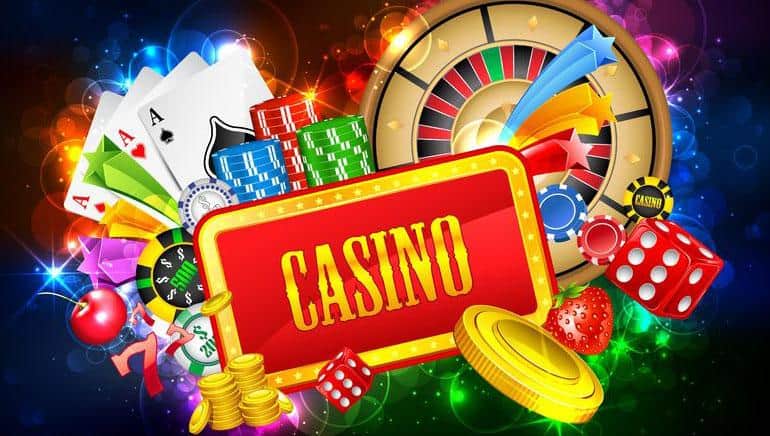
Gambling games have long been a staple in human culture, providing not just entertainment but a fascinating reflection of our dreams, ambitions, and concerns. From the spinning reels of a slot machine to the tactical play of poker, these games embody a range of human feelings and experiences. At their core, casino games are not just a chance to earn cash; they are a snapshot of life itself, where risk versus reward merge and luck can change in an instant.
As players gather around tables or sit in front of vibrantly illuminated machines, they engage in a tradition that transcends mere betting. These games reflect our innate desires for connection, adventure, and the search for fortune. They also unveil deeper truths about human psychology, such as our relationship with fate and the adrenaline of uncertainty. In exploring casino games, we discover not only the mechanics of play but also the rich tapestry of the human experience, showcasing our interconnected narratives of goal and reality.
The Psychology of Gambling
Gambling is intrinsically connected in human psychology, appealing to various feelings and wants. The excitement of taking risks is a fundamental aspect that draws players in, be it the excitement of spinning a roulette or the excitement of drawing a winning card in poker. This rush of adrenaline is frequently likened to other forms of thrill, as the uncertainty of outcomes triggers a unique psychological response. Gamblers often find themselves entranced by the possibility of striking it rich, leading to an almost magnetic draw toward gambling games.
Another, a crucial component of the psychology behind gambling is the concept of optimism and aspiration. Participants often nourish dreams of financial freedom and the opulent lifestyle that can accompany winning. This optimism fuels their ongoing participation in casino games, as it provides a sense of meaning and the conviction that a transformative win could be just one wager away. The story of beating the odds and achieving success resonates with many, reinforcing their commitment to play and involve themselves with these games.
Lastly, social dynamics play a crucial role in gambling psychology. Casino environments are designed to foster social interaction, where gamblers gather to share the experience of wins and losses. This shared aspect not only enhances enjoyment but also affects behavior, as individuals often imitate the actions of others around them. The collective approval found in shared excitement can magnify the emotional experience, making casino games a reflection of not just personal desires but also shared involvement within the gambling community.
## The Dual Nature of Risk and Reward
Gambling games embody the subtle balance between risk and gain that resonates deeply with human psychology. The rush of placing a bet is often accompanied by a rush of adrenaline, as players are confronted with the prospect of a huge payout, yet cognizant of the risk to lose. This dual experience reflects a essential aspect of life: the paths we choose often come with intrinsic risks, and the chase for gain can push us to take chances we might not otherwise consider. In this way, casino games reflect real-world decisions, enticing players to risk not just their money, but also their dreams.
The allure of jackpot prizes and payouts fuels a wave of hope, motivating players to imagine a more promising future that could manifest from a fortunate turn of the roulette or dealing of a hand. This positive outlook can drive individuals to engage in more daring actions, encouraging them to push their boundaries in search of financial gain. However, just as in life, the consequences of these decisions can lead to both triumph and loss. The stories of both jackpot winners and those who have suffered everything at the tables demonstrate the unpredictable nature of chance and its impactful effect on our futures.
Ultimately, the interaction of engaging with gambling activities serves as a potent reminder of the human condition. Every game played is loaded with the tension of risk, as gamblers weigh the rewards against the risks. This dynamic not only highlights the excitement that comes with betting but also exposes the weaknesses that come with the desire for more. As we journey through the complexities of choice and consequence in both the casino and in life, we find that the pursuit of risk and reward shapes our character and experiences in significant manners.
Community and Solitude in Gambling Culture
Casino culture is a distinct blend of communal engagement and individual pursuit, reflecting the tensions of human experience. Gamblers often gather around tables, sharing in the thrill of the action, celebrating wins, and commiserating over losses. sa88 This social aspect is vital, as it creates a sense of community and camaraderie among diverse groups of people. Regular visitors to gaming establishments may form friendships and establish routines, turning the gambling venue into a alternative home where they experience connected to a greater community of players.
However, the allure of casino games can also result to isolation. As players become engrossed in the thrill of gambling, they may withdraw from personal relationships or fail to interact with the environment outside the casino. For some, the pursuit of a windfall can distract from real connections, leading to isolation. The situation of being surrounded others yet experiencing solitary is not rare, as the focus shifts from shared enjoyment to the individual concerns of each individual’s path.
This interplay of community and isolation creates a vivid tapestry that defines gaming atmosphere. It showcases the intricacy of human interactions, where joy and sorrow coexist. Gambling venues serve as both a sanctuary for social engagement and a platform for individual struggles, illustrating how deeply entwined our desire for connection and the personal quest for fortune can be. In navigating this environment, gamblers confront their own stories—seeking both the thrill of the game and the fellowship of fellow players, ultimately mirroring the broader spectrum of human experience.
